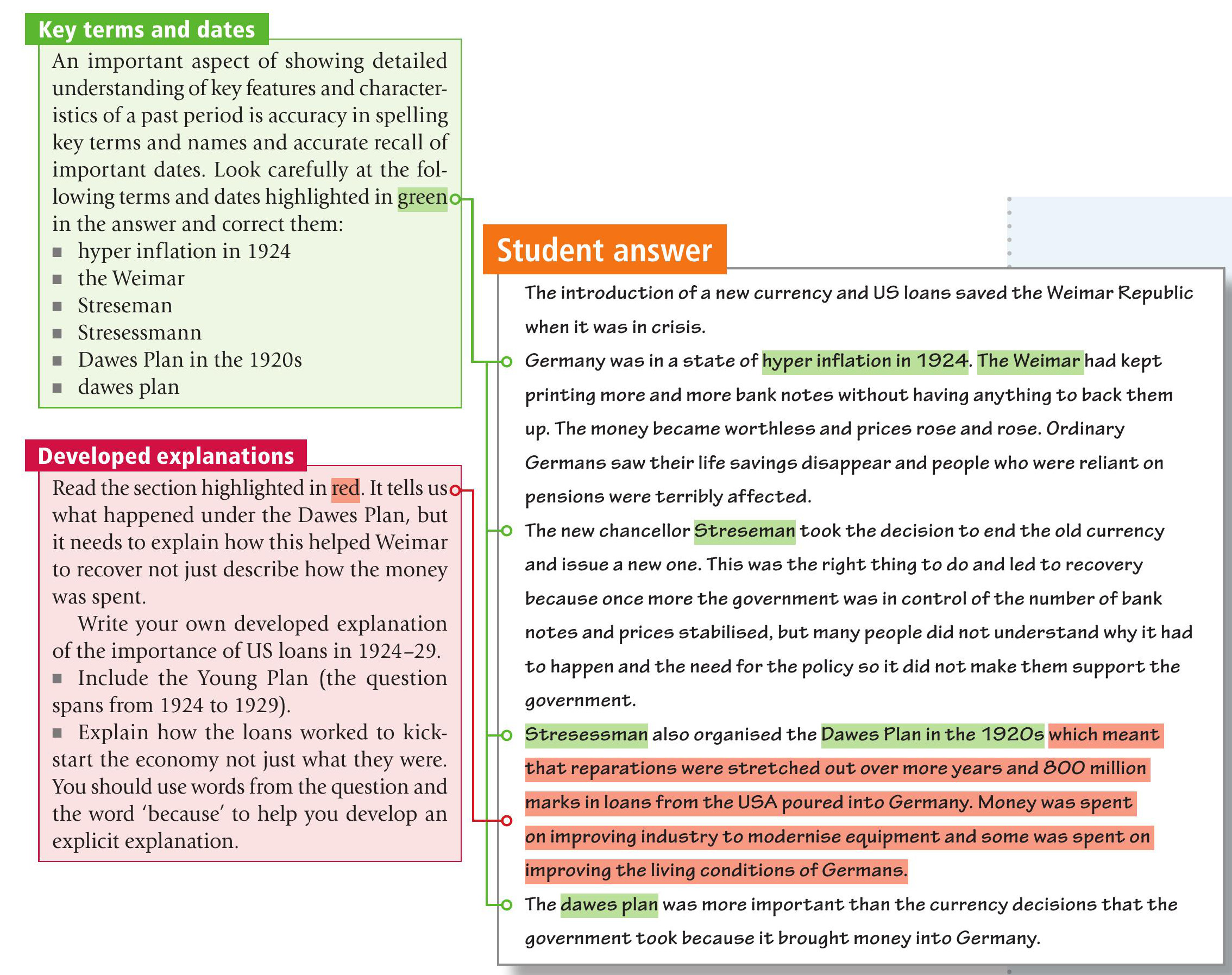
The Weimar Republic was created in the chaotic aftermath of the First World War. Its leaders were Socialists who believed in democracy, universal suffrage, workers’ rights and free speech.Germany was a democratic republic from 1918 until Hitler became chancellor in 1932. The republic faced serious threats to its survival between 1918 and 1924 due to the legacy of the First World War, the impact of an economic crisis and the nondemocratic political forces who were determined to destroy it.
In 1918 Germany was on the verge of starvation as a result of the successful Allied blockade and the collapse of industrial production due to the lack of raw materials. There were 600,000 widows and 2 million children without fathers. However, because there had been no invasion of Germany it was easy for those who opposed the Socialists to argue that by signing the Armistice they had ‘stabbed Germany in the back’. The settlement imposed by the Allies at Versailles further fuelled resentment against the Ebert government because the terms were so harsh against Germany, including loss of territory and huge reparation payments.
Your organisation does not have access to this article.
Sign up today to give your students the edge they need to achieve their best grades with subject expertise
Subscribe




